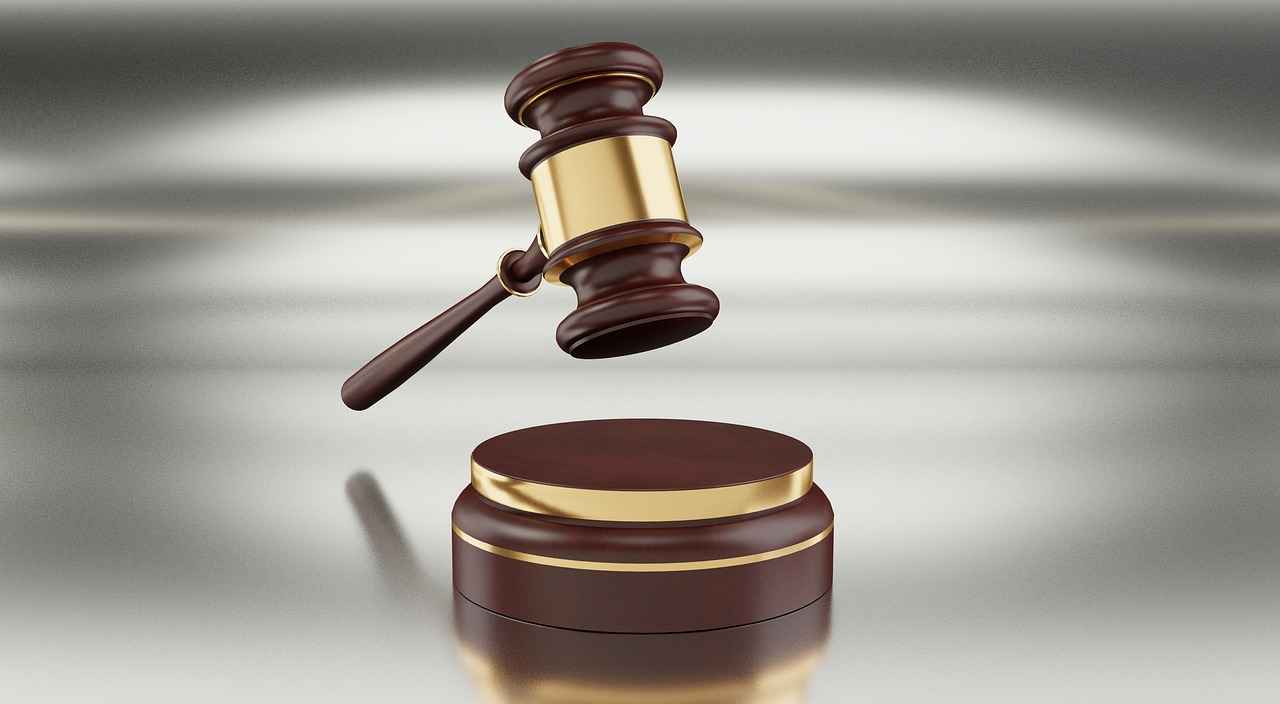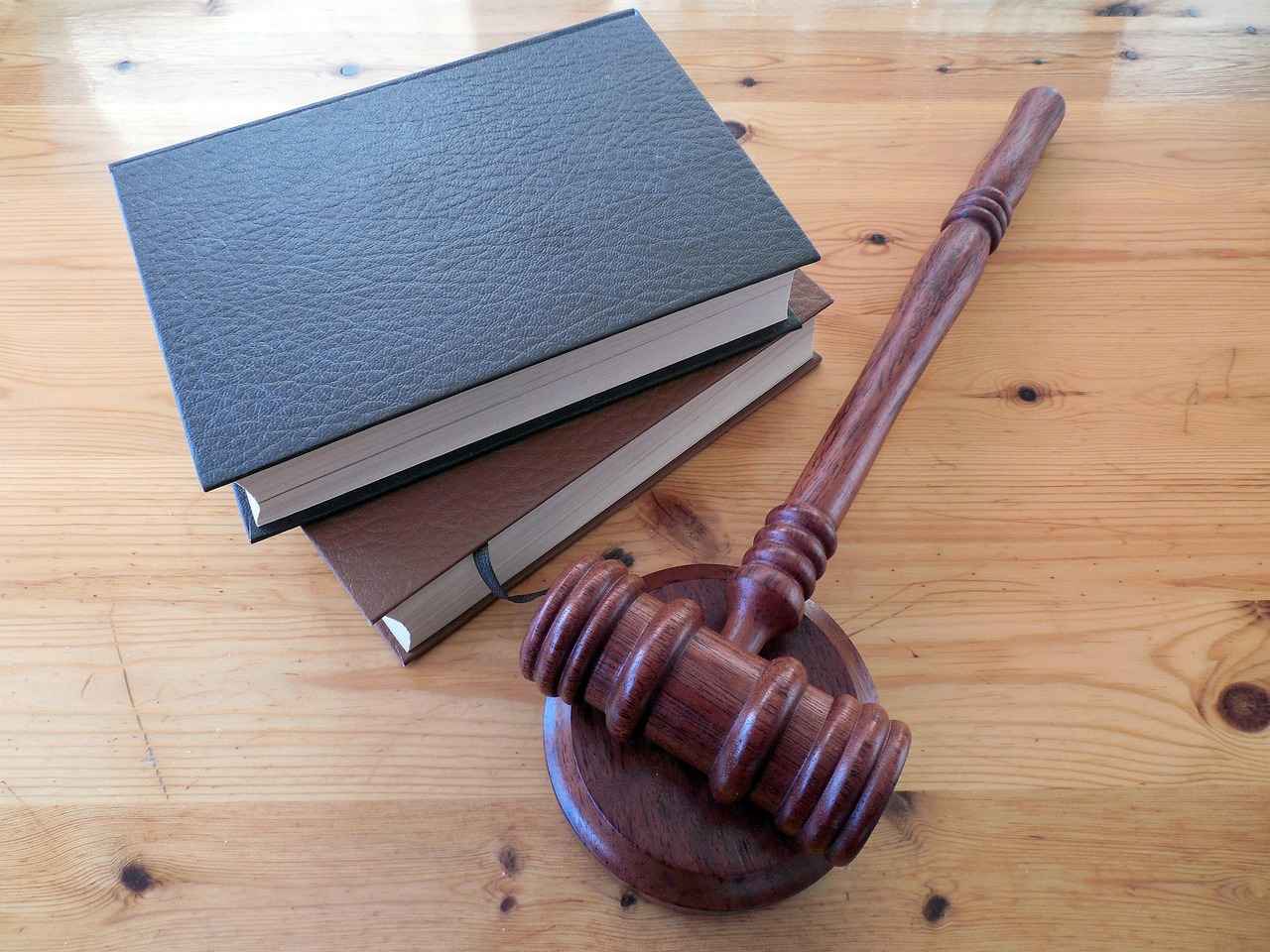In this article, we will explore various types of legal cases common in the U.S. and provide expert guidance on finding qualified lawyers in Spokane, Washington. With over 30 years of experience in the U.S. legal system, I aim to equip you with the knowledge you need to navigate the complexities of legal representation.
Understanding Personal Injury Cases
Personal injury cases arise when an individual suffers harm due to another’s negligence or intentional actions. Common examples include car accidents, slip and falls, and workplace injuries. To find a skilled personal injury attorney, consider their track record of successful settlements and jury verdicts. Look for lawyers who offer free consultations and work on a contingency fee basis, meaning they only get paid if you win your case. Utilize platforms like Avvo or FindLaw to read reviews and compare attorney profiles.
Medical Malpractice: Finding the Right Attorney
Medical malpractice involves negligence by healthcare professionals leading to patient harm. Cases can be complex and require expert testimony. When searching for a medical malpractice attorney, prioritize those with experience in medical law and a history of handling similar cases. Verify their credentials through state bar associations and look for membership in organizations like the American Association for Justice. Watch for red flags such as lack of experience in medical cases or high-pressure sales tactics.
Breach of Contract: Legal Representation Essentials
Breach of contract cases can occur in various contexts, including business agreements and consumer contracts. When seeking an attorney for this type of case, ensure they have a strong background in contract law. Look for lawyers who have successfully represented clients in similar disputes. Resources like Nolo can provide valuable information on finding specialized attorneys. Be cautious of attorneys who guarantee outcomes, as this can indicate a lack of integrity.
Property Disputes: Navigating Legal Challenges
Property disputes may involve boundary lines, easements, or ownership issues. Selecting a real estate attorney with experience in property law is vital. Look for attorneys who are members of local real estate associations and have a proven track record in property litigation. Websites like Super Lawyers can help identify top-rated real estate attorneys in your area. Avoid attorneys who lack transparency about their fees or those who do not provide clear communication.
Landlord-Tenant Disputes: Legal Guidance You Need
Landlord-tenant disputes are common, especially in rental markets like Spokane. Understanding your rights as a tenant or landlord is crucial. Seek an attorney specializing in landlord-tenant law, and check their experience with local housing regulations. Resources like Tenant.net can provide guidance on tenant rights. Steer clear of attorneys who do not offer initial consultations or those who seem uninterested in your specific situation.
Defamation: Libel and Slander Cases
Defamation cases involve false statements that harm an individual’s reputation. These cases can be intricate and require specialized legal knowledge. When looking for an attorney experienced in media law, check their history of handling defamation cases and their success rates. Look for attorneys who are active in relevant legal forums and have published articles on the subject. Be wary of attorneys who promise quick results or those who lack a clear strategy for your case.
Employment Disputes: Protecting Workers’ Rights
Employment disputes can range from wrongful termination to workplace discrimination. Finding a dedicated employment lawyer is essential for protecting your rights. Seek attorneys with experience in employment law and a solid understanding of federal and state regulations. Utilize resources like EEOC to familiarize yourself with your rights before consulting an attorney. Avoid lawyers who are unwilling to discuss your case in detail or those who lack transparency regarding their fees.
Product Liability: Holding Manufacturers Accountable
Product liability cases involve injuries caused by defective products. When searching for a specialized attorney, prioritize those with experience in product liability law. Look for attorneys who have successfully handled cases against manufacturers and who are familiar with consumer safety regulations. Platforms like Lawyers.com can help you find qualified attorneys. Be cautious of attorneys who do not provide a clear fee structure or those who lack a strong online presence.
Wrongful Death: Seeking Justice for Loved Ones
In wrongful death cases, families seek justice for loved ones lost due to negligence. Finding a compassionate yet assertive attorney is critical. Look for lawyers with a history of handling wrongful death cases and who demonstrate empathy towards your situation. Consider attorneys who offer free consultations and work on a contingency basis. Avoid attorneys who prioritize quick settlements over thorough representation.
Class Action Lawsuits: Joining Forces for Justice
Class action lawsuits allow individuals to band together against corporations for collective justice. Finding an attorney with experience in class actions can enhance your chances of success. Seek lawyers who have a proven track record in handling class action cases and who demonstrate a commitment to their clients. Utilize resources like ClassAction.org for information on ongoing cases. Be wary of attorneys who lack transparency about their fees or those who do not provide clear communication.
Criminal Defense: Navigating Serious Charges
Criminal defense cases, including assault and drug offenses, require skilled representation. When choosing a criminal defense attorney, look for those with experience in handling serious charges similar to yours. Verify their credentials through state bar associations and check for any disciplinary actions. Resources like CriminalDefenseAttorney.com can help you find qualified attorneys. Avoid attorneys who make unrealistic promises or those who lack a clear defense strategy.
Family Law: Divorce and Child Custody Matters
Family law encompasses divorce, child custody, and support issues. Finding an attorney who specializes in family law is essential for achieving favorable results in these emotionally charged cases. Look for attorneys with experience in mediation and negotiation, as these skills can be invaluable. Resources like FamilyLaw.com can help you identify qualified family law attorneys. Be cautious of attorneys who seem more interested in conflict than resolution.
Bankruptcy: Finding Financial Relief
Bankruptcy cases can provide relief from overwhelming debt. Knowing how to find a qualified bankruptcy attorney can help you navigate the process effectively. Look for attorneys with experience in bankruptcy law and a track record of successful filings. Consider those who offer free consultations and are transparent about their fees. Avoid attorneys who pressure you into filing or those who lack a strong understanding of your financial situation.

Understanding Personal Injury Cases
Understanding personal injury cases is crucial for anyone who has experienced harm due to negligence or intentional actions. These cases can arise from a variety of situations, including automobile accidents, slip and falls, workplace injuries, and medical malpractice. The primary goal in a personal injury case is to seek compensation for damages suffered, which can include medical expenses, lost wages, and pain and suffering.
To navigate the complexities of personal injury law effectively, finding a skilled personal injury attorney is essential. Here are some key considerations and steps to help you find the right legal representation:
- Research and Referrals: Start by asking friends, family, or colleagues for recommendations. Personal referrals can provide insights into an attorney’s capabilities and client service.
- Online Directories: Utilize online legal directories such as Avvo or FindLaw. These platforms offer ratings, reviews, and detailed profiles of attorneys specializing in personal injury law.
- Experience and Specialization: Look for attorneys who specialize in personal injury cases. Their experience in handling similar cases can significantly enhance your chances of a favorable outcome. Check their track record in securing settlements or verdicts.
- Initial Consultations: Many personal injury attorneys offer free initial consultations. Use this opportunity to discuss your case, evaluate their communication style, and gauge their understanding of the law.
- Contingency Fees: Most personal injury lawyers work on a contingency fee basis, meaning they only get paid if you win your case. Ensure you understand their fee structure before proceeding.
- Client Reviews and Testimonials: Read client reviews and testimonials to get a sense of the attorney’s reputation and how they handle cases. Look for patterns in feedback regarding communication, professionalism, and outcomes.
- Red Flags: Be cautious of attorneys who make unrealistic promises or pressure you into signing a contract. A reputable attorney will provide honest assessments and allow you to make informed decisions.
In summary, understanding personal injury cases and knowing how to find a qualified attorney can significantly impact the outcome of your case. Taking the time to research, consult, and evaluate potential lawyers will help you make an informed choice, ultimately leading to a better chance of receiving the compensation you deserve.

Medical Malpractice: Finding the Right Attorney
Medical malpractice is a complex area of law that often requires a specialized understanding of both medical principles and legal standards. When a patient suffers harm due to a healthcare provider’s negligence, it can lead to devastating consequences. Thus, finding the right attorney to handle such cases is crucial. Here’s how to navigate this intricate legal landscape effectively.
Understanding Medical Malpractice
Medical malpractice occurs when a healthcare professional fails to provide the standard of care that is expected in the medical community, leading to injury or harm to the patient. Common examples include misdiagnosis, surgical errors, and medication mistakes. Each of these situations requires a thorough investigation and a deep understanding of both medical and legal frameworks.
Identifying Relevant Experience
When searching for a medical malpractice attorney, it is essential to look for someone who specializes in this area of law. Here are some key points to consider:
- Specialization: Ensure the attorney has a focus on medical malpractice cases. This specialization indicates that they understand the nuances and complexities involved.
- Track Record: Look for attorneys with a proven history of successful outcomes in medical malpractice cases. Ask for case studies or examples of past settlements or verdicts.
- Medical Knowledge: An ideal attorney should have a solid grasp of medical terminology and practices. This knowledge can significantly enhance their ability to argue your case effectively.
Research Platforms and Credentials
Utilizing online platforms can greatly aid in your search for a qualified attorney. Here are some recommended resources:
- Legal Directories: Websites like Avvo, Martindale-Hubbell, and FindLaw provide listings and reviews of attorneys based on their practice areas.
- State Bar Associations: Check with your state’s bar association for a list of licensed attorneys and any disciplinary actions they may have faced.
- Professional Associations: Membership in organizations like the American Association for Justice (AAJ) can indicate a commitment to the field and ongoing education.
Consultation and Communication
Once you have narrowed down your options, schedule consultations with potential attorneys. During these meetings, assess their communication skills and willingness to answer your questions. Here are some tips for the consultation:
- Prepare Questions: Ask about their experience with cases similar to yours, their approach to handling your case, and their fee structure.
- Assess Compatibility: It is crucial to feel comfortable with your attorney, as you will be working closely together throughout the legal process.
- Discuss Fees: Understand how the attorney charges for their services, whether it’s on a contingency basis or hourly rate, and what additional costs may arise.
Red Flags to Avoid
As you evaluate potential attorneys, be vigilant for any warning signs that may indicate a lack of professionalism or competence:
- Poor Communication: If an attorney is difficult to reach or unresponsive during initial consultations, this may be a sign of future issues.
- Lack of Experience: Be cautious of attorneys who claim to handle a wide variety of cases without a clear focus on medical malpractice.
- Negative Reviews: Look for consistent negative feedback from former clients, as this can reveal underlying problems with their practice.
In summary, finding the right attorney for a medical malpractice case involves careful consideration of their experience, expertise, and communication style. By utilizing available resources and being vigilant for red flags, you can enhance your chances of securing effective legal representation and achieving a favorable outcome in your case.

Breach of Contract: Legal Representation Essentials
A breach of contract occurs when one party fails to fulfill their obligations under a legally binding agreement. These cases can arise in various contexts, from business transactions to personal agreements. Understanding the nuances of contract law is essential for anyone involved in such disputes. To navigate the complexities of these cases effectively, it is crucial to find an attorney with a strong background in contract law. This expertise can significantly influence the outcome of your case.
When searching for a qualified attorney in this field, consider the following criteria:
- Experience in Contract Law: Look for lawyers who specialize in contract disputes. Their experience will ensure they are familiar with the specific laws and precedents that may apply to your case.
- Track Record of Success: Review the attorney’s history of handling breach of contract cases. A proven track record can give you confidence in their ability to represent your interests effectively.
- Client Reviews and Testimonials: Research online reviews and testimonials from previous clients. Positive feedback can indicate the attorney’s professionalism and effectiveness.
- Communication Skills: Choose an attorney who communicates clearly and promptly. Good communication is vital for understanding your case and making informed decisions.
- Fee Structure: Discuss the attorney’s fee structure upfront. Understanding how they charge—whether hourly, flat fee, or contingent—can help you avoid unexpected costs.
In major metropolitan areas like New York City, Los Angeles, and Chicago, numerous resources can assist you in finding the right attorney:
- Legal Directories: Websites like Avvo, Martindale-Hubbell, and FindLaw allow you to search for attorneys by practice area and location. These platforms often include ratings and reviews.
- State Bar Associations: Check your state bar association’s website for a list of licensed attorneys in your area. They often provide referral services to help you find an attorney suited to your needs.
- Local Legal Aid Organizations: If you are facing financial constraints, local legal aid organizations can connect you with attorneys who may offer pro bono services or reduced fees.
While searching for an attorney, be aware of red flags that may indicate a less-than-reputable lawyer:
- Lack of Transparency: If an attorney is unwilling to discuss their fees or provide a clear outline of their services, consider this a warning sign.
- Poor Communication: If you struggle to get in touch with the attorney or receive delayed responses, it may indicate a lack of commitment to your case.
- Unverifiable Claims: Be cautious of attorneys who make unrealistic promises or guarantees regarding the outcome of your case.
In conclusion, finding the right attorney for a breach of contract case is a critical step toward achieving a favorable resolution. By considering their experience, track record, and communication skills, you can make an informed decision that aligns with your legal needs. Always conduct thorough research and trust your instincts when selecting legal representation.

Property Disputes: Navigating Legal Challenges
Property disputes are a common source of conflict among homeowners, landlords, and tenants. These disputes can arise from a variety of issues, including boundary lines, easements, and zoning regulations. Understanding how to select a qualified real estate attorney can significantly streamline the resolution process and help you avoid protracted legal battles.
When facing a property dispute, the first step is to clearly identify the nature of the conflict. Common issues include:
- Boundary disputes: Conflicts over where one property ends and another begins.
- Title disputes: Questions regarding ownership rights and claims against the property.
- Easement conflicts: Disagreements over the right to use a portion of another’s property.
- Zoning issues: Challenges related to land use regulations and compliance.
Finding the right attorney for your property dispute is crucial. Here are several proven methods to help you identify the most qualified legal representation:
- Seek recommendations: Start by asking friends, family, or colleagues for referrals to reputable real estate attorneys. Personal experiences can provide valuable insights.
- Utilize online platforms: Websites like Avvo and FindLaw allow you to search for attorneys based on their specialties and read client reviews.
- Check credentials: Look for attorneys who specialize in real estate law and have a proven track record in handling property disputes. Verify their credentials through state bar associations.
- Schedule consultations: Most attorneys offer free initial consultations. Use this opportunity to discuss your case and assess their expertise and approach.
While evaluating potential attorneys, keep an eye out for red flags that may indicate a lack of professionalism or competence:
- Poor communication: If an attorney is difficult to reach or does not respond promptly to your inquiries, it may signal a lack of commitment to your case.
- Unclear fee structures: Be wary of attorneys who are not transparent about their fees. Ensure you understand how they charge for their services, whether it’s hourly or a flat fee.
- Negative reviews: While one or two negative reviews may not be a dealbreaker, a pattern of complaints can be concerning.
In addition to these tips, it’s essential to consider the attorney’s experience level. An attorney with extensive experience in property disputes will be more adept at navigating the complexities of real estate law and may have established relationships with local courts and other professionals in the field.
Finally, trust your instincts. The attorney-client relationship is fundamental to the success of your case. You should feel comfortable discussing your concerns and confident in their ability to represent your interests effectively.
By following these guidelines, you can find a skilled real estate attorney who will help you navigate the often-challenging landscape of property disputes, ensuring that your rights are protected and that you achieve a favorable resolution.

Landlord-Tenant Disputes: Legal Guidance You Need
Landlord-tenant disputes are increasingly common in Spokane and across the United States. These disputes can arise from various issues, including non-payment of rent, property damage, or lease violations. Understanding your rights as a tenant or landlord is crucial to navigating these often-contentious situations. The legal landscape surrounding landlord-tenant relationships can be complex, and having the right legal guidance can make all the difference in resolving conflicts efficiently.
To effectively manage landlord-tenant disputes, it is essential to first familiarize yourself with the local laws that govern rental agreements in Spokane. Washington state law outlines specific rights and responsibilities for both landlords and tenants. For instance, landlords must provide a habitable living environment and adhere to regulations regarding security deposits. On the other hand, tenants are obligated to pay rent on time and maintain the property in good condition. Understanding these obligations can help you identify potential legal breaches.
When disputes arise, finding a knowledgeable attorney who specializes in landlord-tenant law is crucial. Here are some steps to help you locate the right legal representation:
- Research Local Attorneys: Start by searching for attorneys in Spokane who focus on landlord-tenant disputes. Websites like Avvo and FindLaw can provide valuable information about local lawyers, including their areas of expertise, client reviews, and ratings.
- Check Credentials: Look for attorneys with a strong background in real estate law or landlord-tenant disputes. Certifications or memberships in relevant legal associations can also serve as indicators of their expertise.
- Consultation: Schedule consultations with potential attorneys to discuss your case. This initial meeting can help you gauge their understanding of your situation and their approach to resolving disputes.
- Ask About Fees: Be sure to discuss the attorney’s fee structure upfront. Some attorneys may offer flat fees for specific services, while others charge hourly rates. Understanding the costs involved can help you make an informed decision.
- Evaluate Communication: Effective communication is vital in any attorney-client relationship. Choose an attorney who listens to your concerns and explains legal concepts clearly.
It is also essential to be aware of red flags when hiring a lawyer. For example, if an attorney guarantees a specific outcome or pressures you into making quick decisions, it may be best to seek representation elsewhere. A reputable attorney will provide realistic expectations based on their experience and knowledge of the law.
In conclusion, landlord-tenant disputes can be complex and emotionally charged. However, by understanding your rights and seeking the guidance of a qualified attorney, you can navigate these challenges more effectively. Whether you are a landlord facing a difficult tenant or a tenant dealing with an unresponsive landlord, having a legal expert on your side can help ensure that your rights are protected and that you reach a fair resolution.

Defamation: Libel and Slander Cases
Defamation cases, which encompass both libel and slander, are intricate legal matters that require a comprehensive understanding of various legal principles. Defamation occurs when false statements are made about an individual or entity that harm their reputation. The complexity of these cases often stems from the need to prove that the statements were not only false but also made with a certain level of intent or negligence.
In the realm of defamation, libel refers to written statements, while slander pertains to spoken words. Each type has its own set of legal standards and evidentiary requirements. For instance, public figures must demonstrate “actual malice” to win a defamation lawsuit, meaning they must prove that the false statement was made with knowledge of its falsity or with reckless disregard for the truth. This higher burden of proof can make defamation cases particularly challenging for those in the public eye.
When seeking legal representation for a defamation case, it is crucial to find an attorney who specializes in media law or defamation litigation. Here are several steps to guide you in your search:
- Research Local Attorneys: Start by searching for lawyers in your area who have experience handling defamation cases. Websites like Avvo and FindLaw can provide listings and reviews.
- Check Credentials: Look for attorneys with a proven track record in media law, as well as relevant certifications or memberships in legal associations.
- Schedule Consultations: Many attorneys offer free initial consultations. Use this opportunity to discuss your case and gauge their expertise in defamation law.
- Ask About Their Approach: Inquire about their strategy for handling defamation cases. A good attorney should be able to explain the legal process clearly and outline how they plan to advocate for you.
- Evaluate Communication Skills: Effective communication is vital in legal matters. Ensure that the attorney is approachable and willing to answer your questions.
Additionally, be aware of potential red flags when hiring a lawyer. These might include:
- Lack of Experience: If an attorney has little to no experience in defamation cases, it may be prudent to continue your search.
- Unclear Fee Structures: Ensure that the attorney clearly explains their fee structure and any potential additional costs.
- Poor Reviews: Look for reviews or testimonials from previous clients. A pattern of negative feedback can be a warning sign.
Ultimately, navigating a defamation case requires not only a knowledgeable attorney but also a clear understanding of the legal landscape. By taking the time to find a qualified lawyer, you can significantly enhance your chances of a favorable outcome. Remember, the right legal representation can make all the difference in effectively addressing and resolving defamation claims.

Employment Disputes: Protecting Workers’ Rights
Employment disputes are a significant concern for many individuals in the workplace. These conflicts can arise from a variety of issues, including wrongful termination, discrimination, harassment, and wage disputes. Understanding your rights and the legal avenues available to you is essential for navigating these challenges effectively.
When facing an employment dispute, it is crucial to seek the assistance of a dedicated employment lawyer. Such professionals specialize in labor law and can provide invaluable guidance in protecting your rights. Here are some key considerations when looking for the right employment attorney:
- Experience in Employment Law: Ensure that the attorney has substantial experience specifically in employment law. This includes familiarity with federal and state laws that govern workplace rights.
- Track Record of Success: Look for an attorney with a proven history of successfully handling cases similar to yours. This can often be verified through client testimonials or case results published on their website.
- Communication Skills: Effective communication is vital. You want a lawyer who can explain complex legal concepts in a way that is easy to understand and who will keep you informed throughout the process.
- Understanding of Your Industry: An attorney who understands the specific challenges and regulations of your industry may be better equipped to represent you.
- Initial Consultation: Most employment lawyers offer a free initial consultation. Use this opportunity to gauge their expertise and assess whether they are a good fit for your case.
In metropolitan areas like New York City, Los Angeles, and Chicago, there are numerous resources available to help you find qualified employment lawyers. Online legal directories, local bar association referrals, and legal aid organizations can be excellent starting points. Additionally, consider utilizing platforms such as Avvo or FindLaw, which provide lawyer ratings and reviews based on client feedback.
However, it is essential to be aware of potential red flags when hiring an attorney. Avoid lawyers who make unrealistic promises about the outcome of your case or those who pressure you into making quick decisions. Transparency regarding fees and billing practices is also crucial; ensure you understand how the attorney charges for their services, whether it be hourly rates or contingency fees.
In summary, employment disputes can be complex and emotionally taxing. By taking the time to find a qualified employment lawyer, you can protect your rights and navigate the legal landscape more effectively. Remember to consider their experience, communication style, and client feedback when making your choice.

Product Liability: Holding Manufacturers Accountable
Product liability cases are crucial in ensuring that consumers are protected from defective products that can cause serious injuries or even fatalities. In the United States, manufacturers, distributors, and retailers can be held liable for injuries caused by their products if they are found to be defective or unreasonably dangerous. This area of law is vital for consumer safety and accountability.
Understanding the different types of product defects is essential for anyone considering a legal claim. There are three primary categories:
- Design Defects: These occur when the product’s design is inherently unsafe. For example, a car model that is prone to rollovers due to its design can be considered defective.
- Manufacturing Defects: This happens when a product is improperly made, deviating from its intended design. For instance, a batch of medication that is contaminated during production may lead to serious health risks.
- Marketing Defects: These involve inadequate warnings or instructions about a product’s use. A common example is a household cleaner that lacks proper safety warnings, leading to accidental poisoning.
When pursuing a product liability case, finding a specialized attorney is critical. Here are some practical steps to locate the most qualified legal representation:
- Research Online: Use legal directories such as Avvo or FindLaw to find attorneys specializing in product liability. Look for those with high ratings and positive client reviews.
- Check Credentials: Look for attorneys who have specific experience in product liability cases. Check their educational background, years of practice, and any certifications that demonstrate their expertise.
- Ask for Referrals: Reach out to friends, family, or colleagues who have had similar legal issues. Personal recommendations can lead you to trustworthy attorneys.
- Consult Multiple Attorneys: Schedule consultations with several attorneys to discuss your case. This will give you a sense of their approach, expertise, and compatibility with your needs.
- Evaluate Communication: An effective attorney should be able to explain complex legal concepts in a way that you understand. Pay attention to how they communicate during your initial meetings.
While searching for a product liability attorney, be aware of potential red flags:
- High Pressure Tactics: If an attorney pressures you to sign a contract or take immediate action, consider it a warning sign. Good attorneys will allow you time to make informed decisions.
- Lack of Transparency: If an attorney is unwilling to discuss their fees or provide a clear explanation of the costs involved, it may indicate a lack of professionalism.
- Poor Communication: If you struggle to get timely responses or clear answers during your initial consultations, it may reflect their future communication style.
In product liability cases, the burden of proof lies with the plaintiff, meaning you must demonstrate that the product was defective and that this defect caused your injury. Therefore, having a knowledgeable attorney who can gather evidence, consult experts, and build a strong case is essential.
Moreover, many product liability cases are subject to strict statutes of limitations, which can vary by state. This means that it is crucial to act promptly in seeking legal representation. An experienced attorney will be familiar with these timelines and can ensure that your claim is filed within the required period.
Finally, a successful product liability case can lead to compensation for medical expenses, lost wages, pain and suffering, and other damages. By holding manufacturers accountable for their products, you not only seek justice for yourself but also contribute to consumer safety and awareness.

Wrongful Death: Seeking Justice for Loved Ones
In the tragic event of a wrongful death, families are often left grappling with profound grief and a multitude of unanswered questions. These cases arise when an individual dies due to the negligence or misconduct of another party, whether it be an individual, corporation, or government entity. In these heart-wrenching situations, it is crucial for families to seek justice for their loved ones, and this journey begins with finding the right legal representation.
Finding an attorney who is not only knowledgeable but also compassionate is essential in navigating the complexities of wrongful death cases. Here are some practical steps to consider when searching for a qualified attorney:
- Research Credentials: Look for attorneys who specialize in wrongful death cases. Check their educational background, years of experience, and any relevant certifications. Membership in professional organizations, such as the American Association for Justice, can also be a good indicator of their commitment to this area of law.
- Read Reviews and Testimonials: Online reviews can provide insight into an attorney’s reputation. Websites like Avvo, Martindale-Hubbell, and Google Reviews can help you gauge the experiences of past clients. Pay attention to feedback regarding their communication style, empathy, and success rates in similar cases.
- Consultations: Many attorneys offer free initial consultations. Use this opportunity to ask questions about their approach to wrongful death cases, their understanding of the legal process, and how they plan to advocate for your family. This meeting can also help you assess whether you feel comfortable working with them.
- Evaluate Communication Skills: Effective communication is vital. Your attorney should be able to explain complex legal concepts in a way that is easy to understand. They should also be responsive to your inquiries and keep you informed throughout the process.
- Discuss Fees and Payment Structures: Understanding the attorney’s fee structure is crucial. Many wrongful death attorneys work on a contingency fee basis, meaning they only get paid if you win your case. Ensure you clarify any potential costs upfront to avoid surprises later on.
In wrongful death cases, the emotional toll can be overwhelming. Therefore, having a compassionate yet assertive attorney can make a significant difference. They should be prepared to handle negotiations with insurance companies and, if necessary, advocate vigorously in court. Look for an attorney who demonstrates a strong sense of empathy while also exhibiting a fierce determination to seek justice for your loved one.
Moreover, it’s essential to be aware of potential red flags when hiring an attorney. If an attorney guarantees a specific outcome or pressures you to make quick decisions, these may be signs to reconsider your choice. Trust your instincts; a good attorney will prioritize your needs and provide a supportive environment for you to express your concerns.
Finally, remember that wrongful death cases can be time-sensitive due to statutes of limitations. It is crucial to act promptly to ensure your family’s rights are protected. By following these guidelines and conducting thorough research, you can find a qualified attorney who will advocate for justice and help you navigate this challenging time.

Class Action Lawsuits: Joining Forces for Justice
Class action lawsuits represent a powerful tool for individuals seeking justice against larger corporations or entities. These lawsuits allow a group of people, often with similar grievances, to combine their claims into a single case, making it more efficient and cost-effective to pursue legal action. The essence of a class action is to ensure that individuals who may not have the resources or motivation to file individual lawsuits can still hold companies accountable for their actions.
To navigate the complexities of a class action lawsuit successfully, finding the right attorney is crucial. Here are some key considerations and steps to help you identify qualified attorneys experienced in handling class action cases.
- Look for Specialization: Not all attorneys are equipped to handle class action lawsuits. Seek out lawyers who specialize in this area of law. They should have a proven track record of successfully managing class action cases, particularly those similar to yours.
- Check Credentials: Verify the attorney’s credentials, including their education, bar association membership, and any relevant certifications. Membership in organizations such as the American Association for Justice can be a good indicator of their commitment to representing clients in class actions.
- Experience Matters: An attorney with extensive experience in class actions will understand the nuances of these cases, including the procedural requirements and potential challenges. Look for someone who has handled cases that resulted in favorable outcomes for clients.
- Read Reviews: Online reviews and testimonials can provide insight into an attorney’s reputation and past performance. Websites like Avvo and Martindale-Hubbell can be helpful resources for researching potential lawyers.
- Initial Consultation: Most attorneys offer a free initial consultation. Use this opportunity to ask questions about their experience, approach to class actions, and their strategy for your case. Pay attention to how they communicate and whether you feel comfortable with them.
In addition to these steps, be aware of red flags that may indicate an attorney is not the right fit:
- Lack of Transparency: If an attorney is unwilling to discuss their fees or provide a clear explanation of the costs associated with a class action, consider it a warning sign.
- Pressure to Sign: Be cautious if an attorney pressures you to sign a contract or move forward with a case quickly. A reputable lawyer will give you time to consider your options.
- Poor Communication: If you struggle to get in touch with an attorney or receive unclear answers to your questions, it may signal that they will not be responsive throughout the legal process.
Class action lawsuits can be a lengthy and complex process, but with the right attorney, you can improve your chances of achieving a favorable outcome. By taking the time to research and select a qualified lawyer, you can ensure that your rights are protected and that your case is presented effectively.
In summary, class action lawsuits provide a vital avenue for individuals to seek justice collectively against powerful entities. By understanding the importance of selecting an experienced attorney and following the outlined steps, you can enhance your chances of success in your legal journey.

Criminal Defense: Navigating Serious Charges
When facing serious criminal charges such as assault, drug offenses, or theft, the stakes are incredibly high. A conviction can lead to severe penalties, including imprisonment, hefty fines, and a permanent criminal record that can affect your future opportunities. Therefore, securing skilled legal representation is paramount. The right criminal defense attorney can make a significant difference in the outcome of your case.
In metropolitan areas like New York City, Los Angeles, and Chicago, the legal landscape can be overwhelming due to the sheer number of attorneys available. Here are some essential guidelines to help you navigate this process effectively:
- Research Credentials: Look for attorneys who specialize in criminal defense. Check their educational background, years of experience, and any certifications or accolades they may have received. A lawyer with a proven track record in handling cases similar to yours is more likely to understand the nuances of your situation.
- Read Reviews and Testimonials: Online reviews can provide insight into an attorney’s reputation. Websites like Avvo and Martindale-Hubbell offer ratings and client testimonials that can help you gauge the effectiveness and reliability of potential lawyers.
- Consultation Meetings: Many attorneys offer free initial consultations. Use this opportunity to ask questions about their approach, experience with cases like yours, and their overall strategy. Pay attention to how they communicate; a good attorney should be clear and transparent.
- Evaluate Their Strategy: During your consultation, inquire about their defense strategy for your specific case. A competent attorney should be able to outline how they plan to approach your defense, including potential plea bargains, evidence examination, and courtroom strategies.
- Assess Compatibility: It’s crucial to feel comfortable with your attorney. You will be sharing sensitive information, so ensure that you can trust them and that they respect your concerns and preferences.
- Check for Red Flags: Be wary of attorneys who guarantee specific outcomes, have poor communication skills, or pressure you into making quick decisions. A reliable attorney will provide honest assessments and allow you time to consider your options.
In addition to these steps, consider the attorney’s familiarity with local laws and court procedures. Each jurisdiction may have different rules that can influence your case’s outcome. An attorney who knows the local legal landscape can leverage their understanding to your advantage.
Overall, the process of selecting a criminal defense attorney requires careful consideration and research. By following these guidelines, you can find a dedicated professional who will advocate for your rights and work towards the best possible outcome in your case.

Family Law: Divorce and Child Custody Matters
Family law is a vital area of legal practice that addresses a range of sensitive issues including divorce, child custody, and support matters. The emotional weight of these cases often necessitates the guidance of a skilled attorney who specializes in family law. Selecting the right legal representation can significantly influence the outcomes of these emotionally charged situations.
When navigating family law cases, it is crucial to understand the various components involved. For instance, divorce proceedings may involve complex financial matters, the division of assets, and the determination of spousal support. In child custody cases, the primary focus is on the best interests of the child, which can lead to contentious disputes. Therefore, finding an attorney who possesses a deep understanding of family law is essential.
To find a qualified family law attorney in your area, consider the following steps:
- Seek Recommendations: Start by asking friends, family, or colleagues for referrals. Personal experiences can provide valuable insights into an attorney’s capabilities.
- Research Online: Utilize online legal directories and websites that specialize in attorney reviews. Look for lawyers with a strong presence in family law.
- Check Credentials: Verify the attorney’s education, experience, and any special certifications in family law. Membership in professional organizations, such as the American Academy of Matrimonial Lawyers, can also be a positive indicator.
- Schedule Consultations: Many attorneys offer free initial consultations. Use this opportunity to discuss your case and assess the attorney’s approach.
- Evaluate Communication: Effective communication is key in family law cases. Ensure that you feel comfortable discussing sensitive issues with your attorney.
- Avoid Red Flags: Be cautious of attorneys who make unrealistic promises or pressure you into decisions. Trust your instincts and seek someone who prioritizes your best interests.
In addition to these steps, it’s important to consider the attorney’s approach to conflict resolution. Some cases may be resolved amicably through mediation or collaborative law, while others may require litigation. An attorney who can navigate both paths effectively is invaluable.
Furthermore, understanding the local laws and court procedures in your area is essential. Family law can vary significantly from one jurisdiction to another, so finding an attorney who is familiar with the local legal landscape can make a substantial difference in your case.
Ultimately, the goal is to find a family law attorney who not only understands the legal complexities but also empathizes with your situation. This combination of expertise and compassion can help you navigate the challenges of divorce and custody matters with greater ease and confidence.

Bankruptcy: Finding Financial Relief
Bankruptcy cases can offer a much-needed lifeline for individuals and businesses struggling under the weight of overwhelming debt. When financial burdens become unmanageable, seeking bankruptcy protection can help you regain control over your financial future. However, navigating the complex world of bankruptcy law requires the assistance of a qualified bankruptcy attorney. Below, we will explore the essential steps to find the right legal representation that can effectively guide you through the bankruptcy process while protecting your assets.
Firstly, it is crucial to understand the different types of bankruptcy available. The two most common forms are Chapter 7 and Chapter 13. Chapter 7 bankruptcy allows for the liquidation of non-exempt assets to pay off creditors, while Chapter 13 provides a repayment plan to keep your assets and pay off debts over time. Knowing which type of bankruptcy suits your financial situation can help narrow down your search for an attorney.
When searching for a qualified bankruptcy attorney, consider the following steps:
- Research Credentials: Look for attorneys who are members of the American Bankruptcy Institute or local bar associations. These affiliations indicate a commitment to staying updated on bankruptcy laws and practices.
- Experience Matters: Seek attorneys with a proven track record in handling bankruptcy cases. Ask about their experience with cases similar to yours and their success rates.
- Client Reviews: Online reviews and testimonials can provide insight into an attorney’s reputation. Websites like Avvo or Martindale-Hubbell can be valuable resources for gauging client satisfaction.
- Initial Consultation: Many bankruptcy attorneys offer free initial consultations. Use this opportunity to discuss your situation, ask questions, and gauge the attorney’s responsiveness and understanding.
- Transparent Fees: Ensure you understand the attorney’s fee structure. A reputable attorney will be transparent about costs, including any additional fees that may arise during the process.
Another important aspect to consider is the attorney’s communication style. You want someone who will keep you informed throughout the process and be readily available to answer your questions. A good attorney should take the time to explain the bankruptcy process in detail, ensuring you understand each step and its implications.
Additionally, be cautious of red flags when selecting a bankruptcy attorney. These may include:
- High-pressure tactics: Be wary of attorneys who push you to file for bankruptcy without fully discussing your options.
- Lack of specialization: Avoid attorneys who do not primarily focus on bankruptcy law, as they may not be familiar with the latest regulations and practices.
- Unclear fee structures: If an attorney is vague about their fees or unwilling to provide a written agreement, consider this a warning sign.
In metropolitan areas like New York City, Los Angeles, and Chicago, the competition among bankruptcy attorneys is fierce. This can be both an advantage and a challenge. With so many options available, it’s essential to take your time and conduct thorough research. Look for attorneys who have established a solid reputation within their communities and who have a deep understanding of local bankruptcy laws.
Furthermore, consider leveraging online legal platforms such as LegalMatch or FindLaw. These platforms can connect you with qualified bankruptcy attorneys in your area, allowing you to compare their qualifications and client reviews easily.
In summary, finding a qualified bankruptcy attorney is a critical step in achieving financial relief through bankruptcy. By understanding your options, researching potential attorneys, and being mindful of red flags, you can make an informed decision that will help you navigate the bankruptcy process effectively and protect your assets. Remember, the right attorney can make a significant difference in your journey towards financial recovery.
Frequently Asked Questions
- What should I look for when hiring a personal injury attorney?
When searching for a personal injury attorney, focus on their experience in handling similar cases, their track record of successful settlements, and client reviews. It’s also essential to ensure they offer a free consultation to discuss your case without any upfront costs.
- How can I determine if a lawyer specializes in medical malpractice?
To find a lawyer who specializes in medical malpractice, check their credentials, look for memberships in relevant legal associations, and read up on their past cases. A good attorney will often highlight their experience in this niche area on their website.
- What are the typical fees for hiring a lawyer in Spokane?
Lawyers in Spokane may charge hourly rates, flat fees, or a contingency fee based on the outcome of your case. It’s crucial to discuss the fee structure upfront and understand what you’ll be responsible for, so there are no surprises later on.
- Can I switch lawyers if I’m not satisfied with my current one?
Yes, you can switch lawyers if you’re unhappy with their services. However, be mindful of any ongoing cases and ensure you have a new attorney lined up to avoid any gaps in representation.
- What should I do if I can’t afford a lawyer?
If you’re struggling to afford a lawyer, consider looking for legal aid services, pro bono offerings, or attorneys who work on a contingency basis. Many lawyers are willing to discuss payment plans or reduced fees based on your financial situation.














